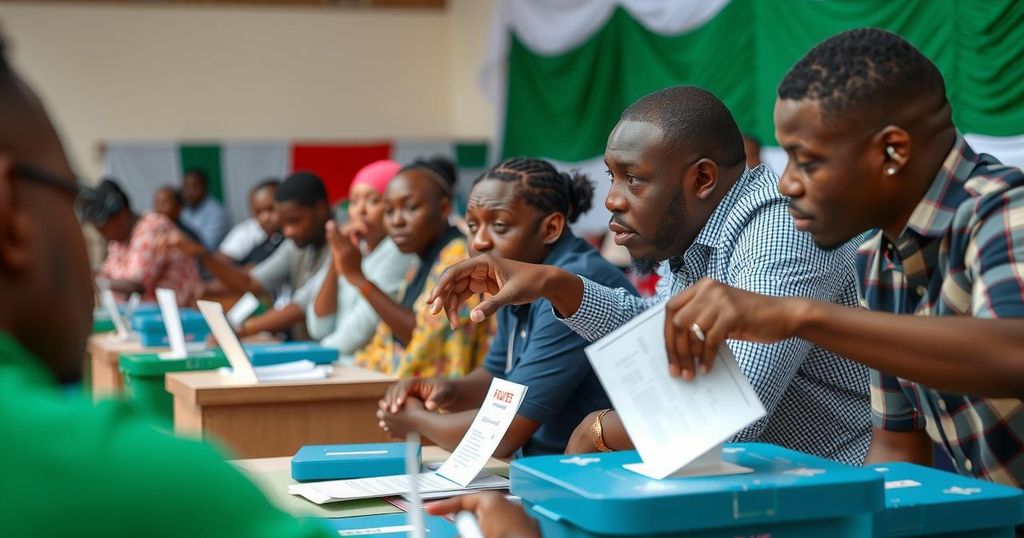World news
2024 ELECTIONS, AFRICA, AFRICA CENTER FOR STRATEGIC STUDIES, AHMED ABDALLAH SAMBI, AP, ASSOUMANI, AZALI ASSOUMANI, COMOROS, CONVENTION FOR THE RENEWAL OF THE COMOROS, ELECTIONS, EUROPE, FRANCE, GOVERNANCE, GOVERNMENT, GRANDE COMORE, JUWA PARTY, MORONI, NATIONAL ASSEMBLY, NATIONAL ELECTORAL COMMISSION, U. S. CONGRESS, VOTER TURNOUT
Jamal Robinson
0 Comments
Comoros Parliamentary Election Overshadowed by Opposition Boycott
Comoros held a parliamentary election on Sunday that was boycotted by certain opposition parties, with leaders citing the government’s authoritarian tendencies and concerns over electoral integrity. Around 330,000 voters were registered, but low turnout was anticipated due to dissatisfaction with the political climate. President Azali Assoumani, who has faced criticism for non-competitive elections, has been in power for multiple consecutive terms following controversial constitutional changes.
Comoros has conducted a parliamentary election amid a boycott by certain opposition leaders, who have raised alarms concerning the increasing authoritarianism of President Azali Assoumani and the election’s integrity. The election is set to determine the 33 legislative seats, with official results anticipated in the following week by the national electoral commission. Approximately 330,000 citizens are eligible to vote in the election, which is characterized by a foreseen low turnout attributed to widespread discontent with the democratic process.
President Assoumani’s party, the Convention for the Renewal of the Comoros, previously gained 20 of the 24 contested seats in the 2020 legislative elections, which opposition groups labeled as a “masquerade.” The opposition, which includes the Juwa Party of former President Ahmed Abdallah Sambi, also boycotted the presidential elections, claiming that both elections were marred by fraud. Comoros has experienced a turbulent political history with repeated military coups since gaining independence from France in 1975, and the current president has endured criticisms regarding the non-competitive nature of his elections.
Despite the looming threat of Tropical Cyclone Dikeledi, officials proceeded with the voting process, indicating a commitment to maintain electoral operations under challenging circumstances. The elections are crucial as they not only shape the legislative landscape but also reflect the broader political tensions within the nation, characterized by opposition dissatisfaction and accusations of governmental repression. Assoumani has recently altered constitutional provisions allowing him to bypass term limits, intensifying the scrutiny of his administration’s practices regarding electoral fairness and democratic governance.
The Comoros archipelago, located off the east coast of Africa near Madagascar, has a complex political history marked by instability and military coups following its independence from France in 1975. President Azali Assoumani, who initially seized power in 1999, has been a significant figure in Comoros’ politics, serving multiple terms under contested conditions. Following crucial constitutional amendments in 2018, Assoumani extended his governance beyond previously set presidential term limits. The political landscape has increasingly been dominated by allegations of repression and irregularities, significantly affecting the public’s confidence in the electoral process and overall governance amidst the growing dissent from opposition groups.
The parliamentary election in Comoros has unfolded against a backdrop of considerable political tension, asserted by a boycott from opposition factions. With historical grievances over electoral fairness and authoritarian conduct deeply influencing citizen sentiment, the outcome of this election is pivotal. The continued calls for democratic integrity underscore the ongoing challenges faced by President Assoumani’s administration, particularly in light of allegations concerning political repression and the legitimacy of electoral processes.
Original Source: abcnews.go.com




Post Comment